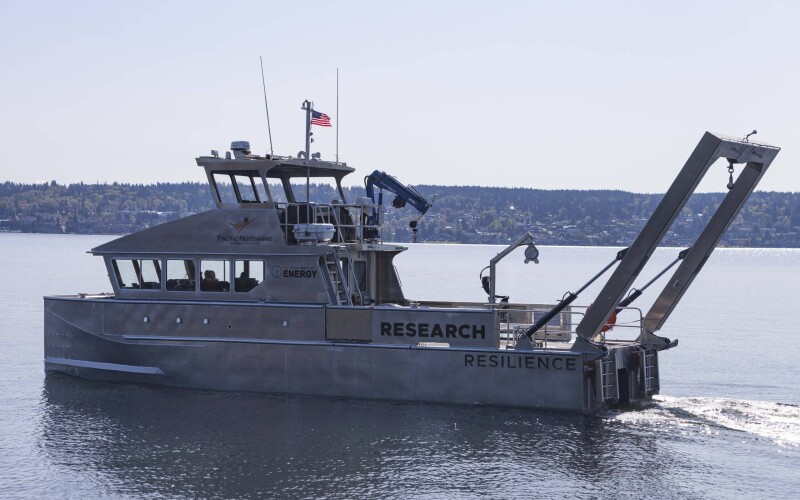Seattle-based Snow & Co. has delivered a 15m (49.7x15.9'x7.54') hybrid catamaran aluminum research vessel for the U.S. Department of Energy’s Pacific Northwest National Laboratory (PNNL).
The vessel, R/V Resilliance, demonstrates Incat Crowther and Snow’s expertise in designing and building low emissions vessels that deliver practical solutions for their scientific mission requirements.
Incat Crowther’s design features a 28m2 main deck equipped with a 5000-lb. capacity A-Frame, 1000-lb. capacity boom crane and a 500-lb. capacity movable davit in addition to access to a foldable swim platform, extracting maximum functionality from the space. A set of stairs offer direct access from the main deck to the upper deck and flybridge, which affords all-round visibility.
The new cat will be able to support the research of six scientists in a tailored layout containing multiple research workstations and convertible sleeping arrangements, providing PNNL a capable platform to efficiently carry out their research.
The vessel, which will have a 3.5’ draft, will be powered by a parallel hybrid-electric propulsion system, consisting of two Volvo Penta D8-510 main engines, capable of producing 374 kW (501 hp) at 2,850 rpm each, supplemented by two Danfoss Editron EM-PMI375-T200-2600 motor-generators. The mains connect to wheels (manufacturer unspecified) through Twin Disc MGX-5075 SC gearboxes. The electric propulsion mode will allow the vessel to operate quietly on electric power between 1-6 knots for four hours, and cruise at 20 knots using diesel power. The new boat will have a maximum speed of 23 knots.
Power will be stored using a 113 kW Spear Trident battery system, allowing the vessel to operate quietly in a zero-emission electric state while engaged in a mixture of survey operational modes. Onboard electronics include Garmin’s electronic suite.
Tankage will include 840 gals. of fuel and 80 gals. fresh water. The boat will also have accommodations for a two-person crew.




